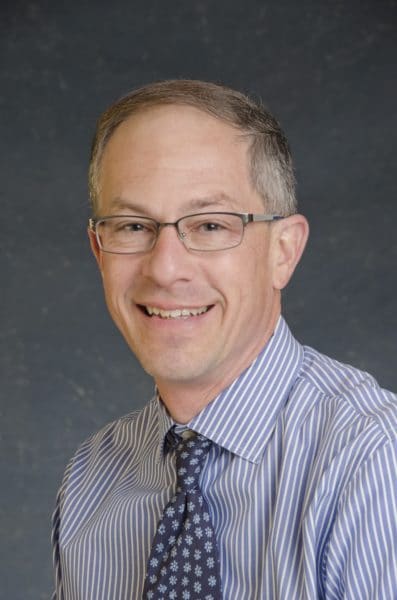NEWS
Report on the 24th Annual AIDS Conference from David Wessner, PhD

David Wessner, PhD
(The Editors of News of Davidson requested that local citizen, frequent contributor, and Davidson professor, David Wessner, allow us to reprint the following article from Forbes. He graciously agreed and wrote an introduction for our readers. Many thanks to Dr. Wessner.)
On August 4, 2022, monkeypox was declared a national health emergency in the U.S. Of course, the Covid-19 pandemic continues. And HIV/AIDS, first recognized over 40 years ago, remains a threat. Although all of us are impacted, either directly or indirectly, by these infectious diseases, the impacts are not consistent. At the 24th International AIDS Conference, experts in many fields noted that social determinants of health result in traditionally marginalized populations bearing an undue burden. Here is a summary of the information that resonated with me when I was at the conference.
As leading members of the HIV/AIDS field from throughout the world met in Montreal for the 24th International AIDS Conference over the past week, discussions of other infectious diseases, including Covid-19 and monkeypox, constantly bubbled near the surface. While these diseases differ in many ways — different viruses, different modes of transmission, different clinical outcomes — a commonality does exist. Human rights issues and basic inequalities drive all three of these ongoing public health emergencies, according to many experts at this meeting.
The inequalities associated with HIV/AIDS have been recognized since the beginning of this global epidemic. Throughout the 40-year history of this crisis, the majority of HIV infections globally have occurred in sub-Saharan Africa. Yet, life-saving antiretroviral drugs were largely unavailable in this region for many years. Today, men who have sex with men, sex workers, and people who inject drugs are disproportionately affected. In many areas of the world, however, members of these populations cannot access prevention or treatment resources because of stigmatization and criminalization. Moreover, data compiled by UNAIDS show that various social determinants of health, like education and economic status, are linked to HIV prevalence rates.
Inequalities have affected Covid-19, too. In the U.S., the disproportionate impact of Covid-19 on people of color has been well documented. In an article published in Annals of Epidemiology, for example, researchers evaluated the burden of Covid-19 among minorities in the U.S. during the first six months of the pandemic and concluded that, “[s]ocial conditions, structural racism, and other factors elevate risk for COVID-19 diagnoses and death in black communities.”
With the development of Covid vaccines, these inequalities are even more obvious. According to data provided by the CDC, almost 80% of Americans have received at least one dose of a Covid-19 vaccine. Two-thirds of Americans are fully vaccinated. Similar levels of vaccine coverage are seen in many high resource countries. Over 82% of Canadians, for example, are fully vaccinated. In many resource-poor countries, however, the numbers are much different. In South Africa, less than a third of all people are fully vaccinated.
Inequalities also have contributed to current monkeypox outbreak. As noted at AIDS 2022 by Dr. Chris Beyrer, the past president of the International AIDS Society and a professor public health at the Johns Hopkins University Bloomberg School of Public Health, a monkeypox outbreak has been ongoing in Africa since 2017, but, there has been no sense of urgency in high resource countries of the Global North. It’s a preventable problem, he added, that should have been dealt with. Dr. Adeeba Kamarulzaman, current president of the International AIDS Society and a professor at the University of Malaya in Malaysia summed up the situation quite bluntly. “We have failed to meet the needs of the world’s most vulnerable.”
So, what happens next? We have ample evidence that addressing inequalities can positively affect public health. At AIDS 2022, Winnie Byanyima, executive director of UNAIDS, noted that the rate of HIV infection among adolescent girls and young women in sub-Saharan Africa declines if underlying economic uncertainties are addressed. The challenge, then, is to identify the most pressing inequalities and develop evidence-based strategies to address them and the associated public health challenges.
To begin this process, Kamarulzaman and Beyrer discussed the IAS-Lancet Commission on Health and Human Rights, a group that they co-chair. The commission is tasked with rethinking ways in which global health can be addressed through a human rights lens that extends far beyond HIV/AIDS from climate change to Covid-19. The idea is that everyone, regardless of their gender, their sexuality, their education level, their economic status, or what country they live in, should have access to and benefit from the scientific advancements that serve to improve public health.
+++++++++++++++++++++++++++++++++++++++++++++
David Wessner is a professor of biology at Davidson College, where he teaches classes on microbiology and HIV/AIDS. Before joining the faculty at Davidson, he researched coronavirus pathogenesis at the Navy Medical Center. He has co-authored an undergraduate microbiology textbook and The Cartoon Guide to Biology.


